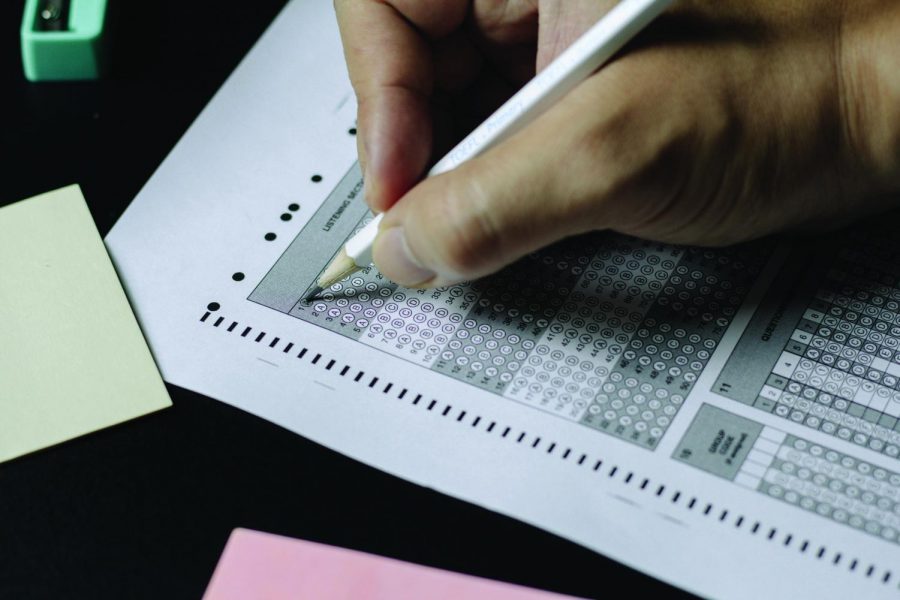Final exams canceled
Traditional final exams removed from curriculum
For many students, the end of the semester means finals, but not this year.
Despite the school year starting earlier than years’ past, which was intended to move final exams before winter break for the first time in the school’s history, students received an email in early November, school officials announced that there would be no final exams this year.
The November 5 email sent to students and parents by Ashley Weltler, assistant principal for academics, assessment, and innovation, explained that “for the past several semesters [due to COVID], we have eliminated our traditional practice of giving cumulative, final exams which count toward 20% of a student’s total grade,” which is why the administration decided to end traditional final exams for the foreseeable future.
While 74% of students reported being happy about the removal of traditional final exams, according to a November Bear Facts Student Media survey of 334 students, some students were unhappy about the changes because there was inconsistency between teachers and departments when it comes to the end of the semester now.
“It’s really frustrating because a lot of my teachers are like, ‘no, you guys work so hard, you don’t need another test,’ but then some are like, ‘hey, I’m going to squeeze in an overall exam in one week, and if you don’t do well, then it’s gonna hurt your grade,’” Katie Hindman, senior, said. “I think they should either do finals or no finals with no in between, because right now, it’s really confusing and frustrating.”
The administration recognizes that many students are still confused about changes made to final exams, according to Weltler.
“I think that [a lot of students are still confused],” Weltler said. “So to clear up some of that confusion, a student may have an exam at the end of the semester, but we have gotten rid of the final exam schedule, where students sit down to take a 90 minute exam [to be counted toward] the final exam category.”
Teachers can still assign a comprehensive summative test or project covering the material taught throughout the semester, however, any end of semester assessments will only count toward the established summative category. The 20% final exam category has been eliminated, so that a student’s grade is based on the 80-20 policy, where 80% of a student’s grade is summative assessments and projects and 20% is formative work.
According to Weltler, the reason for the removal of final exams was because of the changes brought upon by the pandemic, but also because students are able to demonstrate mastery through summative assessments alone.
“When we looked at the data, we did not see that final exams had a significant impact on students’ grades one way or the other,” Weltler said.
Teachers will have several meetings in their professional learning communities focused on deciding what the end of the semester will look like for each class, according to McKenna Serowka, science department head.
“For example, all of the CP Biology teachers will have their own meeting where they talk about what they’re going to do for [the end of the semester], but every CP Biology class will do the same thing, as will every Honors Biology and every AP Biology class,” Serowka said.
For classes that do not assign students with a comprehensive assessment, the last three days of school will be normal days, and attendance for those days will be mandatory.

Going into her senior year, this is Mackenzie’s second and final year on staff and her first year as News Editor. She looks forward to graduating and...

